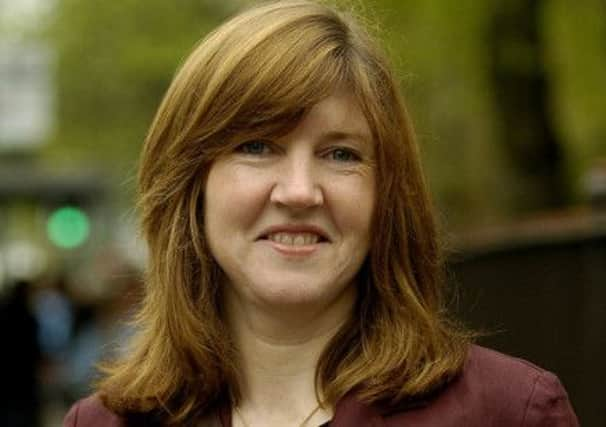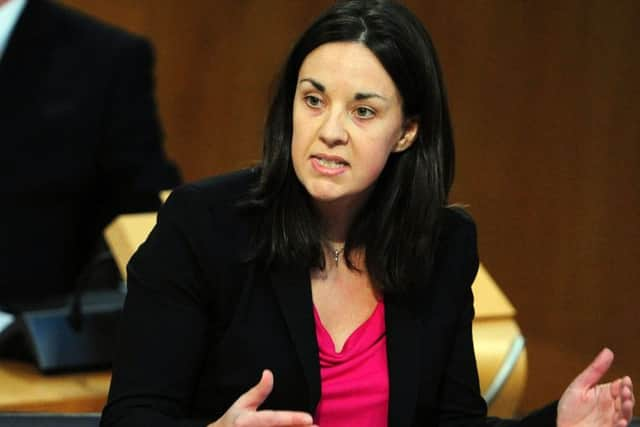Comment: Party quotas ensure gender equality


We now have women leading Scottish Labour and the Scottish Conservatives. The Scottish Greens have a gender balanced leadership with Councillor Maggie Chapman and MSP Patrick Harvie as co-conveners. And it looks likely that Nicola Sturgeon will be our first woman First Minister.
Thousands of women came together to campaign on both sides of the referendum debate, many of them involved in politics for the first time, and that energy shows no sign of dissipating. But look behind the high profile women and the lively social media campaigns, and the picture is much less positive.
Advertisement
Hide AdAdvertisement
Hide AdScotland’s women are nearly 52 per cent of the population. Yet as the recent report Sex And Power In Britain 2014 report showed, only 35.1 per cent of our MSPs are women (down from its historic high of nearly 40 per cent in 1999).


Scotland’s 32 councils are much worse, with less than a quarter of our councillors female. This means there are only 297 women councillors representing their communities across Scotland, compared with 1,223 men. And only three of the 32 councils are led by a woman. The report also highlights that, out of the 59 Scottish MPs that sit in Westminster, only 13 (22 per cent) are women.
Inequality matters. Evidence from across the world shows that if gender inequality persists in decision-making, it is to the detriment of policy-making and the well-being of society.
The people who govern us, in our parliament and our council chambers, should reflect the society they represent, not a closed shop. That is why women from across the political divide have decided to come together to campaign for legal quotas in the Scottish Parliament, our council chambers and in our public bodies.
The time is right. As gender experts, Meryl Kenny and Fiona Mackay, argue in their influential blog Genderpol, the “historical moment” of devolution in 1999 opened up opportunities for women’s political participation. But that moment passed quickly, and it became difficult for campaigners to press for further reforms.
The referendum campaign and its aftermath have created a new “historical moment” and this time we need to exploit it fully if we are to get lasting change.
Experience in Scotland and elsewhere has shown that voluntary party quotas to secure gender equality are not sufficient.
Eight countries in the EU now have legislated forms of quotas. In Ireland any party not reaching 30 per cent faces financial penalties and in France it is 50 per cent. In Belgium, nominations with less than 50-50 balance are simply not valid.
Advertisement
Hide AdAdvertisement
Hide AdScotland should join them and introduce legal quotas. And not just any quotas – they should be the best in Europe, with robust sanctions for those parties that do not comply and rules to ensure that women candidates are not consigned to unwinnable seats or the bottom of regional lists.
Women 50:50 has very clear objectives. At the moment, the power to bring in legal quotas in the Scottish Parliament is currently reserved to Westminster, under the provision on political parties in the Scotland Act 1998.
As politicians discuss “extensive new powers” for the Scottish Parliament, we would like to see the power to legislate for gender quotas devolved.
We want every political party in Scotland to support gender quotas in their manifestos for the 2016 Holyrood elections. And we want to see change by 2020.
Evidence from the European Union suggests that it takes three election cycles to implement a new quota rule as parties are reluctant to get rid of incumbent members – who are usually men.
Since the Scottish Parliament was set up, we have had four election cycles. The implementation of quotas, and a parliament that looks like the society it represents, could already have been a reality. Change is long overdue.
But change must, and will, come. The women of Scotland came together to campaign for fair rents and equal pay in the referendum.
Now we are joining forces, working with all those who wish to see progress, so we can, together, build a better Scotland. Gender equality alone will not deliver a truly representative Parliament, but it’s a long overdue first step. «
• Kezia Dugdale is a Labour MSP for Lothian. Alison Johnstone is a Green MSP for Lothian.